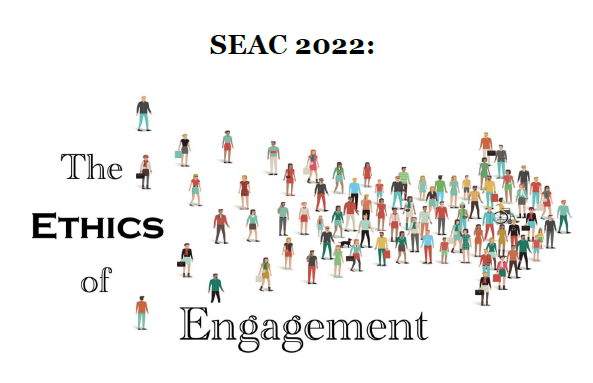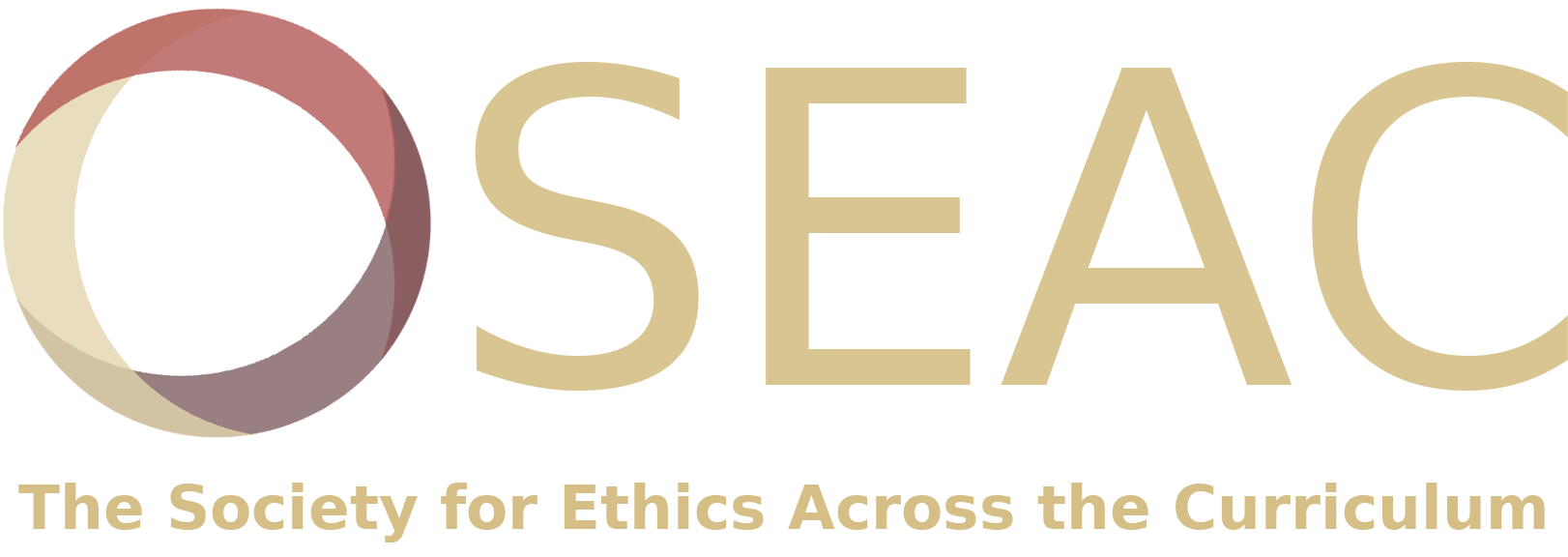
Concurrent Session 6D
Location
D: Room 209 (Bryant Hall, second floor)
Start Date
8-10-2022 8:30 AM
End Date
8-10-2022 10:15 AM
Description
- Participatory Approaches to Community-based Learning: A Path to Racial Diversity and Equity in Higher Education (Virtual) / Kelley Ditzel, Georgia College and State University; Sandra Godwin, Georgia College and State University
Universities do not exist in isolation; they are embedded in local communities with particular histories and are greatly affected by economic and political forces. Those forces often function as obstacles to a university’s goals of racial diversity and inclusion. For example, political and economic forces may manifest themselves in weak assessment of the extent to which students have developed a critical consciousness as a result of their work in service-learning courses (Shay 2020). We teach service-learning or community-based engaged learning (C-bEL) courses at Georgia College (GC), a small, public liberal arts university in rural, Middle Georgia. GC is a predominately white institution; however, the city in which it resides is significantly more racially diverse. In our service-learning courses, we use a participatory approach (Freire 1986, Smith 1997, Stoecker 2013) that centers knowledge generated by oppressed groups and thus helps to ensure that any institutional commitment to equity in all its forms is realized. More specifically, and perhaps more importantly than meeting broad institutional goals, our intention is to develop reciprocal relationships between GC and the surrounding community, build the capacity of our community partners to sustain their social justice efforts, and develop students’ critical consciousness. We argue that a participatory approach to service-learning/C-bEL courses will lead to effective and revealing assessment of student learning and is a necessary path to racial diversity and inclusion and ensuring that public universities truly serve the public good. - How Comparing Nonconscious, Repressed, and Structural Racism Matters / Kristen Golden, Millsaps College
If for many whites, complacence with racial advantage can be highly unintentional, the question in this inquiry is: unintentional in what way? Are we talking about denied racially-biased beliefs that, though disavowed and ignored, remain accessible to consciousness? Or a deeper kind of denial repressed in Freud’s sense? Do some white people become unable to face inner racist feelings or beliefs once a post-civil rights world tells them they are morally bad? The analysis explores how concepts in neuroscience surrounding anti-Black implicit bias by whites are distinct from Sigmund Freud’s concepts of the unconscious and repression. It examines whether and how unintentional white racism relates to the neuroscience and psychoanalysis concepts, respectively. I ground the paper in foundational studies in implicit race bias of the early 2000s. In studies by Elizabeth Phelps and Mahzarin Banaji, white subjects consciously affirm belief in racial equality, but nonconsciously prefer their ingroup. In a companion study, Black subjects—unlike the whites—consciously affirm their ingroup, but nevertheless show a lower ingroup preference than the whites. The studies suggest both groups’ conscious avowals are masking complicated competing feelings. They anticipate subsequent results of two decades of white anti-Black bias in implicit association testing. I conclude that white anti-Black racial bias is not a repression in Freud’s sense, and that the more primary goal than fairness in psyches is fairness in societal structures. - Teaching Critical Perspectives on the Philosophical Canon / Moya Mapps, Yale University
Many figures in the philosophical canon are problematic. Take Kant, for example. Kant is arguably the most influential moral philosopher in all of Western history – but he was also deeply racist and sexist. Consider his remark that the female philosopher is so unnatural, she “might as well even have a beard.” Or consider this passage, a one-two punch of misogyny and racism: "Father Labat reports that a Negro carpenter, whom he reproached for haughty treatment towards his wives answered: “You whites are indeed fools, for first you make great concessions to your wives, and afterward you complain when they drive you mad.” And it might be that there were something in this which perhaps deserved to be considered, but in short, this fellow was very black from head to foot, a clear proof that what he said was stupid." These are not mere off-hand comments: they are published parts of Kant’s philosophical system. What should we do with a figure like Kant? Is there any principled way to divide the “good” Kant from the “bad” Kant? Is it possible to square his racism with his moral universalism, or is his philosophical system incoherent? Should we study Kant in ways that acknowledge his racism and misogyny? Should we stop studying him altogether? In my upcoming course, Critical Perspectives on the Philosophical Canon, my students and I will explore these difficult questions together.
Session Chair: Kristyn Sessions, Villanova University
Relational Format
conference proceeding
Recommended Citation
Ditzel, Kelley; Godwin, Sandra; Golden, Kristen; Mapps, Moya; and Sessions, Kristyn, "Concurrent Session 6D" (2022). Society for Ethics Across the Curriculum Conference. 41.
https://egrove.olemiss.edu/seac/2022/schedule/41
COinS
Oct 8th, 8:30 AM
Oct 8th, 10:15 AM
Concurrent Session 6D
D: Room 209 (Bryant Hall, second floor)
- Participatory Approaches to Community-based Learning: A Path to Racial Diversity and Equity in Higher Education (Virtual) / Kelley Ditzel, Georgia College and State University; Sandra Godwin, Georgia College and State University
Universities do not exist in isolation; they are embedded in local communities with particular histories and are greatly affected by economic and political forces. Those forces often function as obstacles to a university’s goals of racial diversity and inclusion. For example, political and economic forces may manifest themselves in weak assessment of the extent to which students have developed a critical consciousness as a result of their work in service-learning courses (Shay 2020). We teach service-learning or community-based engaged learning (C-bEL) courses at Georgia College (GC), a small, public liberal arts university in rural, Middle Georgia. GC is a predominately white institution; however, the city in which it resides is significantly more racially diverse. In our service-learning courses, we use a participatory approach (Freire 1986, Smith 1997, Stoecker 2013) that centers knowledge generated by oppressed groups and thus helps to ensure that any institutional commitment to equity in all its forms is realized. More specifically, and perhaps more importantly than meeting broad institutional goals, our intention is to develop reciprocal relationships between GC and the surrounding community, build the capacity of our community partners to sustain their social justice efforts, and develop students’ critical consciousness. We argue that a participatory approach to service-learning/C-bEL courses will lead to effective and revealing assessment of student learning and is a necessary path to racial diversity and inclusion and ensuring that public universities truly serve the public good. - How Comparing Nonconscious, Repressed, and Structural Racism Matters / Kristen Golden, Millsaps College
If for many whites, complacence with racial advantage can be highly unintentional, the question in this inquiry is: unintentional in what way? Are we talking about denied racially-biased beliefs that, though disavowed and ignored, remain accessible to consciousness? Or a deeper kind of denial repressed in Freud’s sense? Do some white people become unable to face inner racist feelings or beliefs once a post-civil rights world tells them they are morally bad? The analysis explores how concepts in neuroscience surrounding anti-Black implicit bias by whites are distinct from Sigmund Freud’s concepts of the unconscious and repression. It examines whether and how unintentional white racism relates to the neuroscience and psychoanalysis concepts, respectively. I ground the paper in foundational studies in implicit race bias of the early 2000s. In studies by Elizabeth Phelps and Mahzarin Banaji, white subjects consciously affirm belief in racial equality, but nonconsciously prefer their ingroup. In a companion study, Black subjects—unlike the whites—consciously affirm their ingroup, but nevertheless show a lower ingroup preference than the whites. The studies suggest both groups’ conscious avowals are masking complicated competing feelings. They anticipate subsequent results of two decades of white anti-Black bias in implicit association testing. I conclude that white anti-Black racial bias is not a repression in Freud’s sense, and that the more primary goal than fairness in psyches is fairness in societal structures. - Teaching Critical Perspectives on the Philosophical Canon / Moya Mapps, Yale University
Many figures in the philosophical canon are problematic. Take Kant, for example. Kant is arguably the most influential moral philosopher in all of Western history – but he was also deeply racist and sexist. Consider his remark that the female philosopher is so unnatural, she “might as well even have a beard.” Or consider this passage, a one-two punch of misogyny and racism: "Father Labat reports that a Negro carpenter, whom he reproached for haughty treatment towards his wives answered: “You whites are indeed fools, for first you make great concessions to your wives, and afterward you complain when they drive you mad.” And it might be that there were something in this which perhaps deserved to be considered, but in short, this fellow was very black from head to foot, a clear proof that what he said was stupid." These are not mere off-hand comments: they are published parts of Kant’s philosophical system. What should we do with a figure like Kant? Is there any principled way to divide the “good” Kant from the “bad” Kant? Is it possible to square his racism with his moral universalism, or is his philosophical system incoherent? Should we study Kant in ways that acknowledge his racism and misogyny? Should we stop studying him altogether? In my upcoming course, Critical Perspectives on the Philosophical Canon, my students and I will explore these difficult questions together.
Session Chair: Kristyn Sessions, Villanova University


